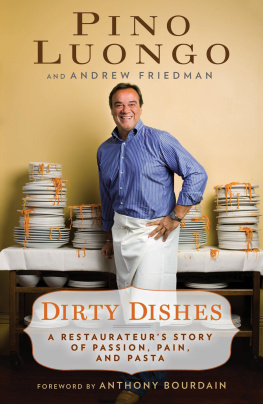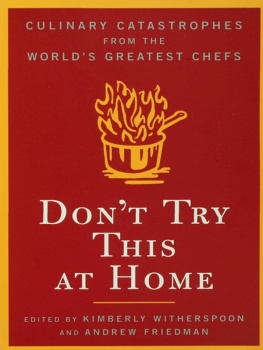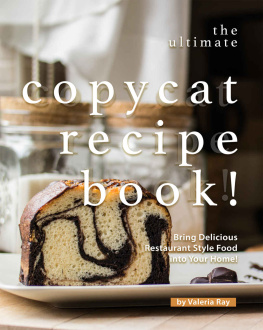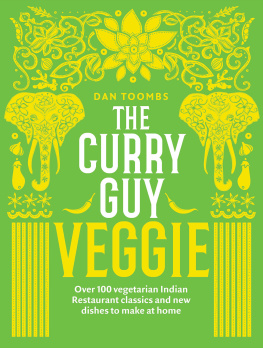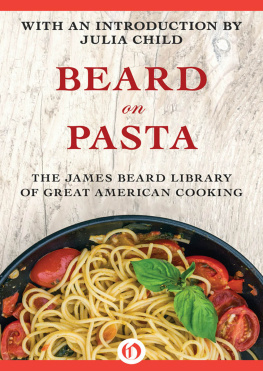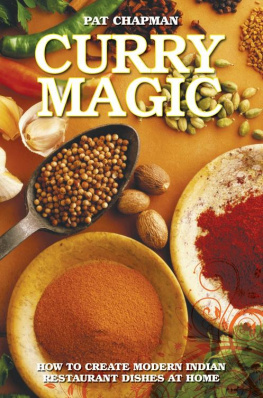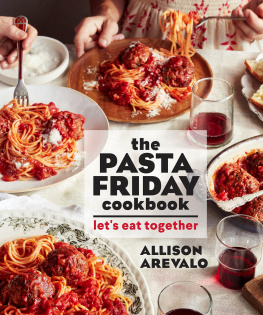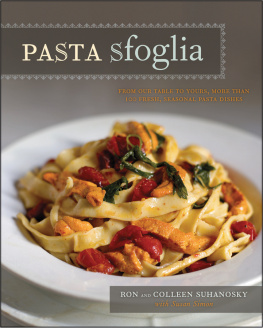DIRTY DISHES
DIRTY
DISHES
A RESTAURATEURS STORY OF
PASSION, PAIN, AND PASTA
PINO LUONGO
and ANDREW FRIEDMAN

Copyright 2009 by Pino Luongo and Andrew Friedman
Foreword copyright 2009 by Anthony Bourdain
All rights reserved. No part of this book may be used or reproduced in any manner whatsoever without written permission from the publisher except in the case of brief quotations embodied in critical articles or reviews. For information address Bloomsbury USA, 175 Fifth Avenue, New York, NY 10010.
Published by Bloomsbury USA, New York
All papers used by Bloomsbury USA are natural, recyclable products made from wood grown in well-managed forests. The manufacturing processes conform to the environmental regulations of the country of origin.
Portions of chapters 5 and 7 appeared in somewhat different form in Dont Try This at Home, edited by Kimberly Witherspoon and Andrew Friedman. They are reprinted here by kind permission of Inkwell Management.
LIBRARY OF CONGRESS CATALOGING-IN-PUBLICATION DATA
Luongo, Pino.
Dirty dishes : a restaurateurs story of passion, pain, and pasta / Pino Luongo and Andrew Friedman.1st ed.
p. cm.
eISBN: 978-1-60819-196-3
1. Luongo, Pino. 2. RestaurateursNew York (State)New YorkBiography. I. Friedman, Andrew, 1967 II. Title.
TX910.5.L86A3 2009
647.95092dc22
2008034860
First U.S. Edition 2009
1 3 5 7 9 10 8 6 4 2
Typeset by Westchester Book Group
Printed in the United States of America by Quebecor World Fairfield
Contents
To my wife, Jessie, and my children, Marco, Jacobella, andLorenzoyou are the backbone of my up-and-down lifeandto all the people who, intentionally or not, entered my life ormy restaurantsI hope you enjoyed yourselves.
Pino Luongo
D IRTY DISHES IS either a classic restaurant morality tale of what happens when you fly too high and too close to the sunor a spiritual journey, a cycle beginning and ending with the simple good things of Italy. Its either the memoir of an ambitious, creative, food-loving kid from Tuscany who grows up to be a successful New York City restaurateuror the redacted confessions of the Dark Prince of Italian fine dining, a man loved and hated with equal fervor by the wide swath of New Yorkers left in his wake.
Its author, Pino Luongo, is either the perpetrator of some of the greatest and most hubristic follies in the recent history of the American restaurant businessor another victim of circumstance, of his own success, of a notoriously cruel and crowded marketplace, and of the caprice of the dining public. Or hes the happy, self-actualized owner-proprietor of Centolire, an excellent Upper East Side restaurant.
Personally, I think all of the above statements are true. Pinos like that: a complicated man. Its only fair that this foreword remain largely speculative, as so many thousands of hours have been spent by so many trying to figure Pino out. He may love simple, straightforward things with genuine passion, and he has always been frank (to say the least) about his likes and dislikes. But one underestimates him at ones peril.
What is clear and inarguable is that he was instrumental in creating the template for what we now take for granted as acceptable Italian food in New York City (and, increasingly, across the country). He was a proponent of menu items which then were unthinkable to serve, but are now standard and much-loved fare. His was the first restaurant to show me, for instance, what a properly sauced pasta could behow important the pasta itself was. He turned everything I thought I knew about Italian foodall the conventional wisdom of the timeon its head and woke me up to an entire world of food and culture. My Fran-cophilic roots were shaken to the core and have never recovered.
That I have recently married into a large Northern Italian family I blame in no small part on Pino. That during the last World Cup finals I betrayed my French roots and rooted for Italia. Pinos fault. That I now crave slowly braised rags, Sardinian flatbread, focaccia pizza with robiola cheese and white truffles, osso buco... His fault. That I even know what spaghetti alla chitarra is? Him. Again.
Did I mention yet that the bastard fired me?
When I met Pino for the first time, shortly after Id been hired as sous chef at his excellent Le Madri, he was at the very peak of his powers and influence. I was summoned to his lair above Il Toscanaccio, a sleek, dimly lit room surrounded by offices and conference areas where terrified minions clacked away on keyboards or hunched over their telephones, passing along his orders in hushed tones. Somewhere across an ocean, boats were being loaded with wheels of aged parmesan and cold-pressed olive oilsfuel for the ever-expanding empire. All across town, chefs twitched involuntarily every time their kitchen phones rang. Would it be Pino, calling from his car, mandating an immediate menu change? Managers sharpened their knives, ready to plunge them into their general managers back should the need arise. Busboys powdered and groomed themselves, fearful of the involuntary flop sweat an unexpected visit from Pino might induce. It seemed, sometimes, from inside his sphere of influence, that the entire worlds nervous system was wired to Pinos. He caught a cold? We all coughed.
Yet the man who peered at me from across the desk that day had an amused look on his face. A bit world-weary, for surethe face of a guy whod seen a lot. But not the face of a jaded or cynical man. This was unusual in a business where such feelings are almost compulsory. Where the daily grind, the grim realities of feeding and liquoring up the general public, tend to discourage such things as love and idealism. And yet I was looking at... an optimist.
Granted, an optimist who gifted me with many such Golden Moments as: Its good to have enemies. It means you are important.
Or, when asked when his chefs could again begin ordering from a particular company whose owner, Pino felt, had been insulting in his demands for money: When? When? When he crawls across Fifty-ninth Street and sucks my fucking DICK!
Or, in discussing another restaurateur with a tough reputation: Hes the biggest son-of-a-bitch in New York. And this is me talking!
In spite of this, when I remember Pino, its always a smiling man who comes to mind. (In fact, I can take issue with only one minor point in this book: He is way too kind to me. I was in so far over my head at Coco Pazzo Teatro, the Titanic could have passed over me unnoticed. I was a virtual Opie Taylor surrounded by Medecis.) Reminiscing about his early days in the business, about his childhood in Italy, about meals eaten, mistakes made, friends and enemies both, Pino always seemed entirely in his element. And its worth mentioning here that of the major decisions, restaurant ventures, concepts, and business moves described in this account, nearly all them were brilliant. Coco Pazzo, Le Madri, Il Toscanaccio, Sapore di Mare, and Mad. 61 were all excellent and innovative restaurants. Only a few other projects turned out to be really bad ideas. Its significant as well that one of the moves for which Pino was most excoriated by the press, the one for which he was ultimately punished, was Tuscan Square, a concept he cherished and felt particularly close to.
In the restaurant business, love is often a killer. This is a business where all too often a place where people gather to eat and drink is in fact a high concept, designed, from the ground up, by committee. Everything from the name on the door to the menu selections are the result of market surveys and conventional wisdom. This is how we arrive at big-box monstrosities marrying one demographics vague fondness for Chinese or Japanese food with anothers need for brightly colored girl drinks. No one is home in these places. They are designed not for anyone in particular, but instead for a bland cross section of perceived appetites.
Next page
